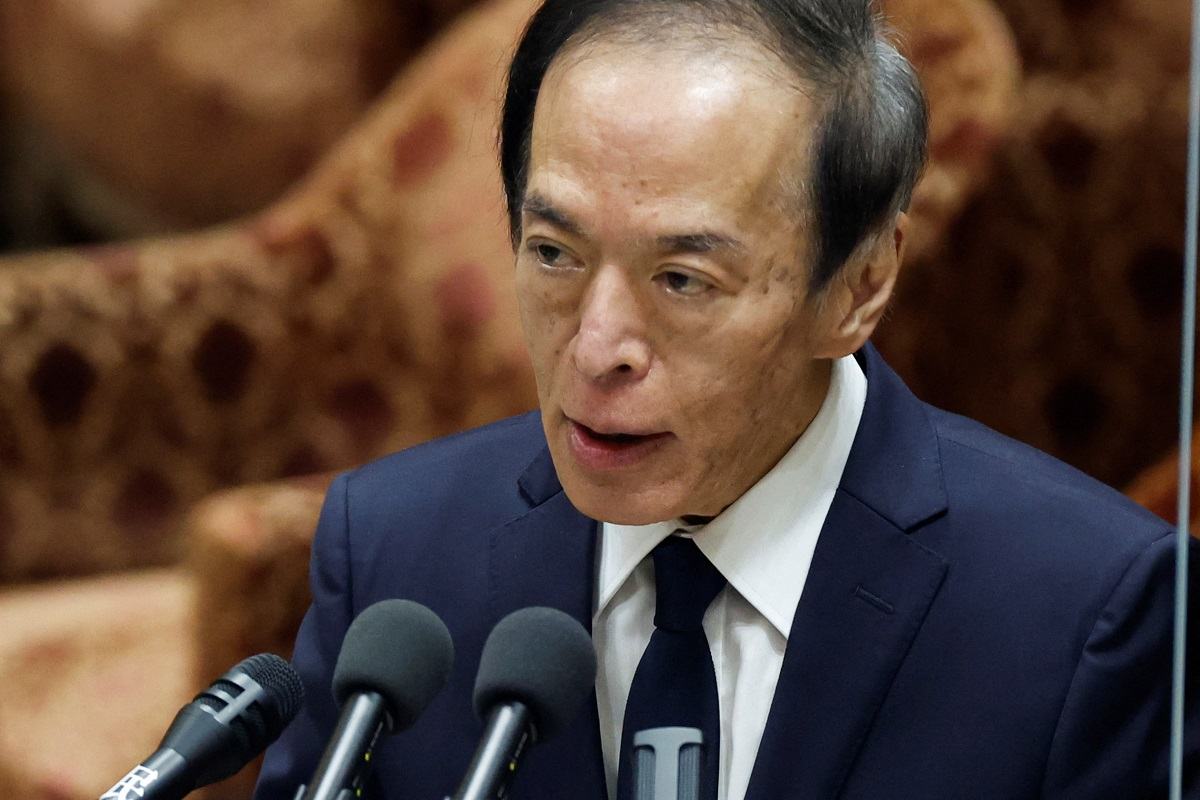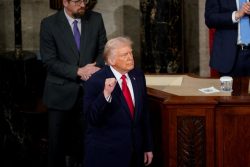
The Japanese government’s nominee for the Bank of Japan Governor Kazuo Ueda speaks during a hearing session at the lower house of the parliament in Tokyo on Friday.
10:24 JST, February 24, 2023
TOKYO (Reuters) – Incoming Bank of Japan (BOJ) Governor Kazuo Ueda said on Friday it was appropriate to maintain ultra-loose monetary policy as inflation has yet to sustainably and steadily meet the central bank’s 2% target.
Ueda said the recent rise in consumer inflation was driven mostly by surging import costs of raw material, rather than strong domestic demand.
He also warned that uncertainties regarding Japan’s economic recovery remained “very high,” warranting the BOJ to maintain ultra-loose monetary policy.
“It’s standard practice to act pre-emptively to demand-driven inflation, but not respond immediately to supply-driven inflation. Otherwise, the BOJ will be cooling demand, worsening the economy and pushing down prices by tightening monetary policy,” Ueda told the lower house confirmation hearing.
“Japan’s trend inflation is likely to rise gradually. But it will take some time for inflation to sustainably and stably achieve the BOJ’s 2% target,” he said.
“It’s true there are various side-effects emerging from the stimulus. But the BOJ’s current policy is a necessary, appropriate means to achieve 2% inflation.”
The yen JPY=EBS wobbled either side of steady as Ueda spoke and was last about 0.3% stronger at 134.34 per dollar.
Earlier this month, the government named the 71-year-old academic as its pick to become next central bank governor in a surprise choice that markets saw as heightening the chance of an end to the unpopular yield curve control (YCC) policy.
With inflation exceeding the BOJ’s 2% target, Ueda faces the delicate task of phasing out YCC, which has drawn public criticism for distorting market functions and crushing banks’ margins.
Upon approval by parliament, he will succeed incumbent Haruhiko Kuroda, whose second, five-year term ends on April 8.
“It seems to be a continuation of the stance taken by Kuroda, though I think it’s difficult to tell right now,” Moh Siong Sim, currency strategist at Bank Of Singapore, said of Ueda’s comments.
“He’s treading a fine line in the sense of trying to find a way to exit (YCC) without being too disruptive on the dollar/yen direction.”
The government’s deputy governor nominees – former banking watchdog head Ryozo Himino and BOJ executive Shinichi Uchida – will testify in the afternoon after Ueda.
The upper house of parliament will hold the confirmation hearing for Ueda on Monday, and that for the two deputies on Tuesday.
The nominations need the approval of both chambers of the Diet, which are effectively done deals as the ruling coalition holds solid majorities in both.
Under YCC, the BOJ guides short-term interest rates at -0.1% and the 10-year bond yield around 0% as part of efforts to sustainably achieve its 2% inflation target.
Under pressure from rising global interest rates, the BOJ was forced to raise in December the implicit cap for its 10-year yield target to 0.5% from 0.25% – a move that fueled market expectations of a near-term tweak to YCC.
Top Articles in News Services
-

Survey Shows False Election Info Perceived as True
-

Hong Kong Ex-Publisher Jimmy Lai’s Sentence Raises International Outcry as China Defends It
-

Japan’s Nikkei Stock Average Touches 58,000 as Yen, Jgbs Rally on Election Fallout (UPDATE 1)
-

Japan’s Nikkei Stock Average Falls as US-Iran Tensions Unsettle Investors (UPDATE 1)
-

Trump Names Former Federal Reserve Governor Warsh as the Next Fed Chair, Replacing Powell
JN ACCESS RANKING
-

Producer Behind Pop Group XG Arrested for Cocaine Possession
-

Japan PM Takaichi’s Cabinet Resigns en Masse
-

Man Infected with Measles Reportedly Dined at Restaurant in Tokyo Station
-

Israeli Ambassador to Japan Speaks about Japan’s Role in the Reconstruction of Gaza
-

Videos Plagiarized, Reposted with False Subtitles Claiming ‘Ryukyu Belongs to China’; Anti-China False Information Also Posted in Japan

























